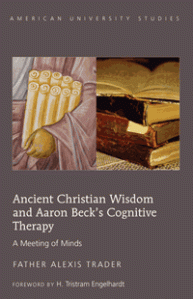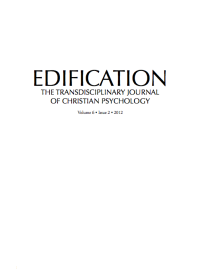For Where Your Treasure Is, There Will Your Heart Be Also
Sometimes, it seems as though we have no control over all the turbulent thoughts that cause us so much anxiety and unrest. And yet, we still do have some power of choice and some power to focus even in a storm of thoughts. That choice and that focus have the capacity to lead us into stillness, rest, and abiding peace. I briefly alluded to this in the last post when I wrote, “Blessed Augustine in his commentary on Psalm 60 offers another interpretation of this passage. He teaches that when you see that your heart is troubled by cares, know that you have turned all your attention to them and have forgotten Christ, so that it is as though He is sleeping within your soul.” The principle that choice and focus of attention can transform one’s life is also contained in the Lord’s words “For where your treasure is, there will your heart be also.” Saint Cyril of Alexandria writes, “Those who think about temporary things place all their hope in them, while those who seek for those things in the heavens, send the eye of their mind thence”(Commentary on the Gospel of Luke, PG 72.745). Anxiety and unrest are problems in time, not problems for eternity. By turning our spiritual eyes towards eternity and by seeking the gifts of eternity, we find peace descending on us quite unexpectedly, like the dew of heaven. The acquisition of the temporary gifts of this life—material possessions, money, fame, and worldly recognition—comes at a price, not only in the next life, but in this life with anxiety, depression, and worst of all the ominous sense that God is far away from us, further than the farthest heaven.
Fr. Seraphim Rose, an American convert to Orthodoxy who reposed in 1982 wrote the following, “Everything in this life passes away—only God remains, only He is worth struggling towards. We have a choice: to follow the way of this world, of the society that surrounds us, and thereby find ourselves outside of God; or to choose the way of life, to choose God Who calls us and for Whom our heart is searching.” Choice and focus, simple concepts, but life-transforming ones when enlivened by the grace of God.
If we are honest with ourselves, we will admit that we spend most of our energy, thoughts, and activity on getting ahead in this world. We do this at our own peril and in so doing, fail to recall this life is very short. When Elder Paisios was asked by some of his spiritual children how to deal with anxiety over the cares of this life, his reply was blunt and simple. He would say, “Simplify your life.” He recognized that no amount of material wealth could bring peace of soul. A simplified life, according to one’s state in life, leads to peace, which in turn leads to stillness where God can be recognized in the heart. A simplified life is a choice about where one’s treasure is, that allows another focus on God our Savior. With the choice of simplicity and with focus in stillness through the invocation of the Holy Name, the treasure of the age to come is in our reach, in fact, that treasure abides in our very heart. And with that treasure present, anxiety and depression can be kept at bay.




Father Bless!
I love your book and what you are doing with this blog.
One of the phrases which I’ve found sprinkled throughout the Psalms (i.e. Septuagient version) are these three simple words: ‘sacrifice of praise’. So, why is praise a sacrifice? I think it has to do with an awareness (or perhaps you would describe it as a watchfulness) about what we are both doing and thinking about.
When I first wake up, my mind almost without exception, fills itself with my problems and some, often repetitive and desperate, attempt to solve these problems. When I can sacrfice these thoughts and begin to praise God as the ‘Treasury of Good Gifts, Giver of Life, Everywhere Present and Filling All Things’ , I have an experience of being centered in HIm. And in this centering in Him, I can remember that He has all I really want and need. As I sacrifice my thoughts to His Praise, I move myself a step closer to cooperating with Him in a way that His Fruits (Galations 5:22), can be shared with Him…especially, as I attempt to give them away.
Each of us can think of our minds as ‘magnifiers’ and what ‘we magnify grows’ in our perception of what is real. When we sacrifice what we would normally think about or do and replace it with a remembrance, praise, and thus prayer to Him; we can begin to participate in His Life. In this participation, we eventually find who we really are as we first discover Him. The simplicity of realizing that in Him we find our true purpose, worth, and security and that so much of our lives have been futile attempts to find purpose in comfort/pleasure, worth in the praise of others, and security as we manage our health and bank account.
Thank you for what you are doing to help many of us wake up to the reality of His Truth, Goodness, and Life.
May God bless you!!!
Father….I should have said ‘ shared with me…as I attempt to give them away’ in my earlier post.
May the Lord God bless us all through His great mercy and love!
Thank you so much for your kind words about the book and the blog.
I appreciate your beautiful reflections on the words “a sacrifice of praise.” I also believe that a sacrifice of praise has to do with how we use the mind. For us, it feels like a sacrifice to not follow the many thoughts about problems that fill the horizon of our minds. I think that stage is the absolutely crucial period of preparation for and before the sacrifice of praise, which according to Saint John Chrysostom consists of thanking God, hymning the Lord and invoking His name (Commentary on Psalm 116, PG 55.327). Elsewhere, Saint John Chrysostom puts an emphasis on a sacrifice of praise as a confession of His name (Homily 33 on the Epistle to the Hebrews, PG 63.227). Confession always requires courage and a powerful use of the will in choosing the good, regardless of the consequences. It is in that use of the will that the sacrifice lies, to choose the very best, most unblemished lamb of the mind, and offer it to the Lord. Confession is also always accompanied by action. Perhaps, that is why Gregory of Nyssa defines the sacrifice of praise as “the fruit of the lips of those who confess Christ by not forgetting to do good works in His name” (On the Meeting of the Lord, PG 46.1180). And so, the sacrifice of praise that leaves the cares of the world behind returns the believer into the world as a minister of God’s love and compassion. The ever present connection between praxis and theoria, like the connection between behavior and cognition, keeps us grounded on earth, but with our hearts looking towards heaven.
Thank you once more.
Fr. Alexis
Father Alexis,
Thank you for your insights and the wisdom you share from our Holy Fathers. How do you find these wonderful quotes? I would love any suggestions you have about books and resources you would recommend. I’ve got a decent Orthodox library but would struggle to find ways find
I was especially drawn to the thoughts below:
Confession always requires courage and a powerful use of the will in choosing the good, regardless of the consequences. It is in that use of the will that the sacrifice lies, to choose the very best, most unblemished lamb of the mind, and offer it to the Lord. Confession is also always accompanied by action.
Doing ‘the good regardless of the consequences’ requires a dispassion or detachment from outcomes which I find very challenging. I also find my ‘outcome attachment’ to influence the level of ‘rigorous honesty’ I’m practicing and living by. The definition I like to use for honesty is absence of an attempt to deceive. So much of my dishonesty results from this belief that I know what outcome is best and I’m unwilling to trust my outcome to God and sacrifice my desires to simply follow His commands and His principles unconditionally.
Your thoughts also connect very nicely into the recovery process of 12 step programs like AA. The 3rd step of AA is : ‘Made a decision to turn our will and our lives over to the care of God as we understood HIm’. Much of recovery, healing and wholeness is dependent upon an honesty which accepts He is God and I’m not, an open mind where we remain students listening to theTeacher, and a willingness to search and be empowered by the Good as we surrender our way to HIm.
In a strange way, much of what I believe you describe is a sacrifice of the barriers of the false self I create as I attempt to be independent from HIm. So much of my will often can be thought of as nothing more than my attempt to play God and live my life without HIm. When I can dismantle these barriers, I can begin to be directed by the flow of His will and to cooperate and participate in His Life.
I am so grateful for you and for what you are doing. Are you still in Mt. Athos?
May God bless you!
Bruce,
You are quite welcome. I am blessed to have at my disposal both the Patrologia Graeca and the Patrologia Latina. I’ve learned my way around them and their indexes over the years, so it’s not to difficult to find a passage, especially if it is from the psalter, as it was in the case of your reference to “a sacrifice of praise.” The translations are my own.
As for doing good regardless of the consequences, I should have written regardless of the short-term consequences. The issue of choosing the short-term over the long-term will probably be the topic of post in the future, it too is a very important concept.
I also appreciate your comments on honesty and the absence of an attempt to deceive; another wonderful topic for Christians to reflect upon.
I serve presently at a dependency of the Monastery of Karakallou, Mt Athos, located in Northern Greece.
Take care. God bless you as well.
Fr. Alexis